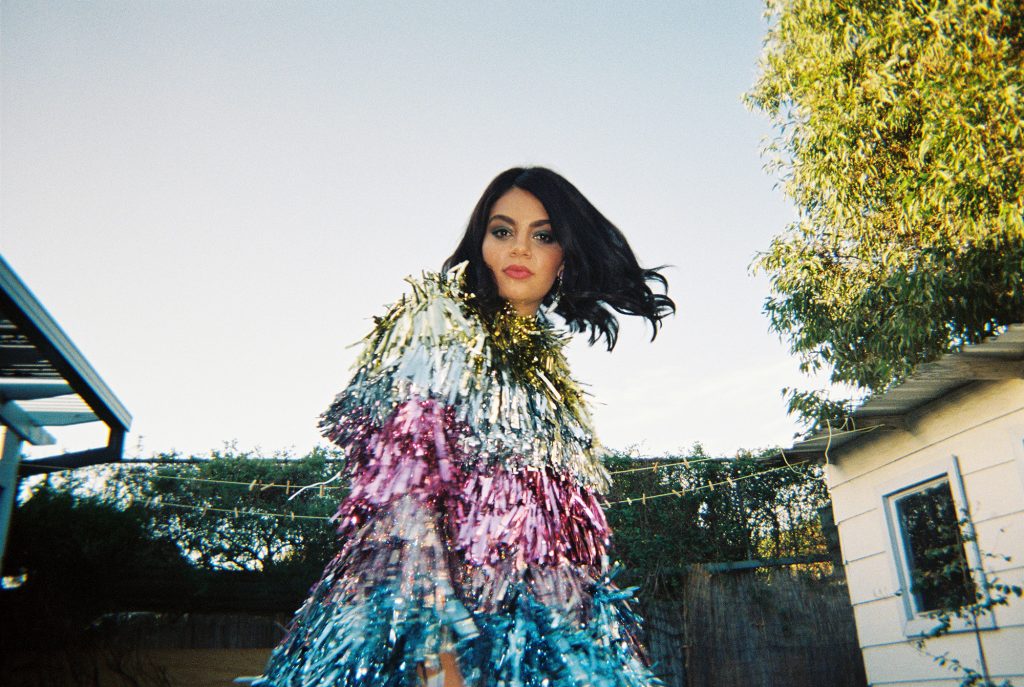Claudia Sangiorgi Dalimore
Following a massive year which saw 'Better in Blak' hit the top five on the ARIA charts, Thelma Plum spoke to Rolling Stone about what lead to this point, and the importance of representation.
It was 2012 when Thelma Plum first arrived on the music scene. Few at the time were able to predict the career this proud Gamilaraay woman would soon cultivate.
Though some quiet years would follow, 2019 saw the release of Better in Blak; her long-awaited debut album that hit both number four on the ARIA charts and brought a conversation about Indigenous culture and pride to the forefront.
“It means a lot when you put so much work into something,” Plum says. “It’s so personal and I’m sharing so much of myself and so many things about myself that I haven’t shared before. I feel really happy that people could connect to it, and that people were able to find something within my music.
“I feel really happy that people could connect to it, and that people were able to find something within my music.”
“The last time I had released music was almost five years prior to that. I had made a record before Better in Blak and ended up completely scrapping it. So it was such a long process that I’m sure people are aware of, so it felt really great.
“One [song from these previous sessions] did make it [onto Better in Blak], which is the last song on that record, called ‘Made for You’. But it wasn’t so much that I didn’t like the songs or thought they were bad or anything like that, but it’s just that they were very different.
“By the time it came around to releasing music, these were songs I’d written three years prior. It didn’t feel relevant to me anymore, and it didn’t feel like the story I wanted to tell. Making that decision was hard, but it was the right decision to make, because I made Better in Blak after that.

“I had made a record before Better in Blak and ended up completely scrapping it. So it was such a long process that I’m sure people are aware of, so it felt really great.” (Picture by Claudia Sangiorgi Dalimore)
While songs such as “Better In Blak” focus on Plum’s own ability to turn trauma into triumph, she explains that it’s vital for youth of all cultures to see diverse talent receiving the spotlight.
“I think now there’s so much amazing deadly talent out there getting a lot more attention, like Alice Skye, Emily Wurramara, Jess Mauboy, and Baker Boy – not just Aboriginal women. I just think it’s so important for young kids to have that representation and see people that look like you in different roles.
“I feel very grateful and very blessed that someone could look up to me in that way. It’s daunting, but it’s a role that I’m very happy to take on.”
“When I was a kid, there wasn’t that much mainstream representation, and it really does something to you as a child when you don’t see anyone who looks like you on the TV.
“It’s hard to put it into words, but it can really skew your idea of beauty and loving yourself, and I just think it’s really important that young kids are exposed or just aware that you can do that.
“I feel very grateful and very blessed that someone could look up to me in that way. It’s daunting, but it’s a role that I’m very happy to take on.”
While Plum now shifts her focus to what the future holds, it appears that her dedicated fans won’t be waiting too long to hear another batch of tunes. “I’m half already started, and very much immersed in that process at the moment,” she says of her songwriting efforts.
“I’ve been writing a lot for my next record, and have songs ready for it. So yeah, try to stop me.”







































